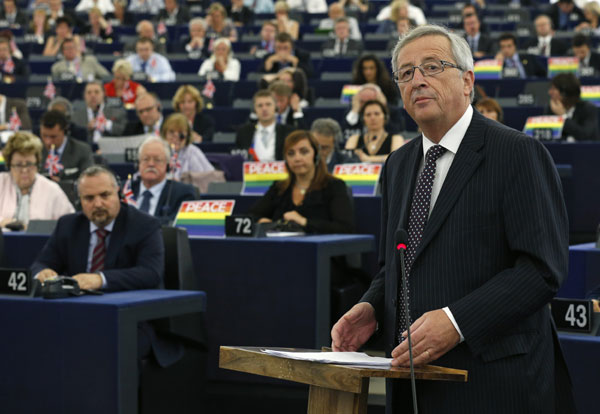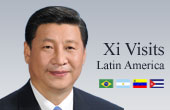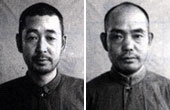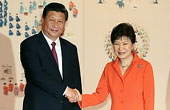EU's Juncker wins approval with 'grand coalition' program
(Agencies) Updated: 2014-07-16 10:53
STRASBOURG, France - Jean-Claude Juncker won a wide endorsement from the European Parliament on Tuesday to be the next head of the executive European Commission after setting out a "grand coalition" investment program to help revive Europe's economy.
Belying his reputation as a grey back-room fixer, Juncker spoke with passion of his ambition to "reindustrialise" Europe and put the European Union's 25 million unemployed, many of them young, back into work.
He promised a 300-billion-euro ($409-billion) public-private investment program over the next three years, combining existing and perhaps augmented resources from the EU budget and the European Investment Bank with private sector funds, to build energy, transport and broadband networks and industry clusters.
"We need a reindustrialisation of Europe," the 59-year-old former Luxembourg prime minister said. He won support from the Socialists and Liberals as well as his own center-right bloc, the largest in the EU legislature.
The position he assumes is the most powerful in the EU. The Commission proposes and enforces laws for 500 million Europeans, from Ireland in the west to Lithuania in the east.
Juncker acknowledged many Europeans had lost confidence in the EU and said only economic results and full employment, not endless debate over EU institutions, would restore their trust.
Eurosceptic parties topped May's European Parliament elections in France and Britain and won more than a quarter of the seats in the Strasbourg-based assembly.
In a secret ballot, the EU assembly approved Juncker by 422 votes to 250, with 47 abstentions and 10 spoiled ballots.
The score, bigger than his center-right predecessor Jose Manuel Barroso of Portugal achieved, fell short of the combined 479 votes of the center-right, center-left and liberal groups.
He will take office on Nov 1 barring any delay in the formation of the full 28-member Commission, whose members will undergo confirmation hearings in September before an overall vote of confidence in October.
In a speech delivered in French, German and English, Juncker sought to reassure Germany and other north European fiscal hawks that the 28-nation bloc's strict rules on budget deficits and debt reduction would be maintained.
However, his emphasis on public investment, reaffirmation of a target of raising industry to 20 percent of EU economic output and call for a minimum wage in each EU country, were designed to appeal to the left.
To British sceptics demanding a return of powers from Brussels to national capitals, he declared that Europe could not be built against nation states and should focus on the big common challenges and not intervene in "small problems".
Juncker later told a news conference he was willing to negotiate with Britain on a list it intended to put forward of EU powers to be returned to national capitals.
"I will negotiate with (Prime Minister) David Cameron and with others and we will make a fair deal with Britain," he said.
He was heckled by Eurosceptics but applauded by most lawmakers when he said the euro had protected Europeans in the world economy, and quoted former French president Francois Mitterrand as saying that nationalism only led to war.











